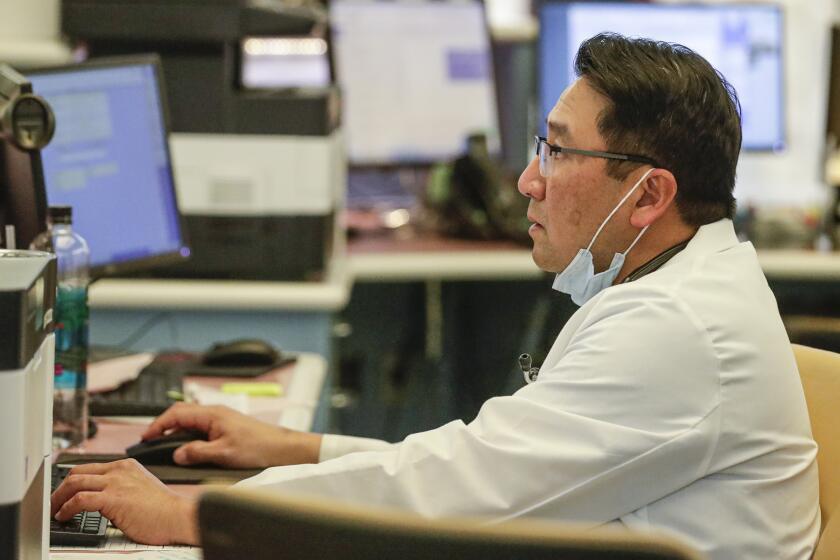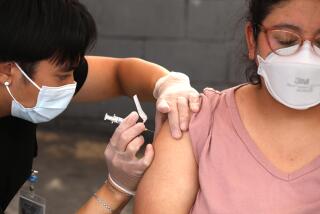For a coronavirus infection, doctor’s orders, rest and fluids are the best medicine

- Share via
There’s a wide range of symptoms of COVID-19, including fever, loss of smell and taste, headache and sore throat. Unfortunately, there isn’t yet an antiviral medication to treat it nor a vaccine to prevent infection by this new coronavirus.
It’s difficult to develop treatments for viral illnesses because a treatment needs to be able to target a specific part of the virus’ life cycle that makes it possible to reproduce, according to Harvard Medical School.
As scientists work to develop treatments and a vaccine, what can you do if you are sick?
First, keep in mind that about 80% of people who get the disease will experience mild symptoms.
If you have been diagnosed, do what your doctor says. The Centers for Disease Control and Prevention recommends isolation, monitoring and treating symptoms, and preventing the spread of the virus.
To treat symptoms, doctors recommend approaching it as if you have the flu. Take over-the-counter medicines to alleviate fever and aches, but keep track of what you’re taking and when. Stay hydrated and get plenty of rest.
If you haven’t been diagnosed but are feeling ill, it’s still a good idea to practice social distancing and try to quarantine yourself in a separate part of your home.
Has someone in your household tested positive for the coronavirus? Here’s guidance on how to care for them and how self-isolation can work in a shared home.
If any of your symptoms worsen, or if you feel like you can’t breathe, it’s time to contact your healthcare provider.
For prevention, health experts don’t recommend any specific medications. Just wash your hands, avoid touching your face, wear a mask in public, practice social distancing and be careful about objects you touch while out. Do not inject or swallow disinfectants under any circumstances.








